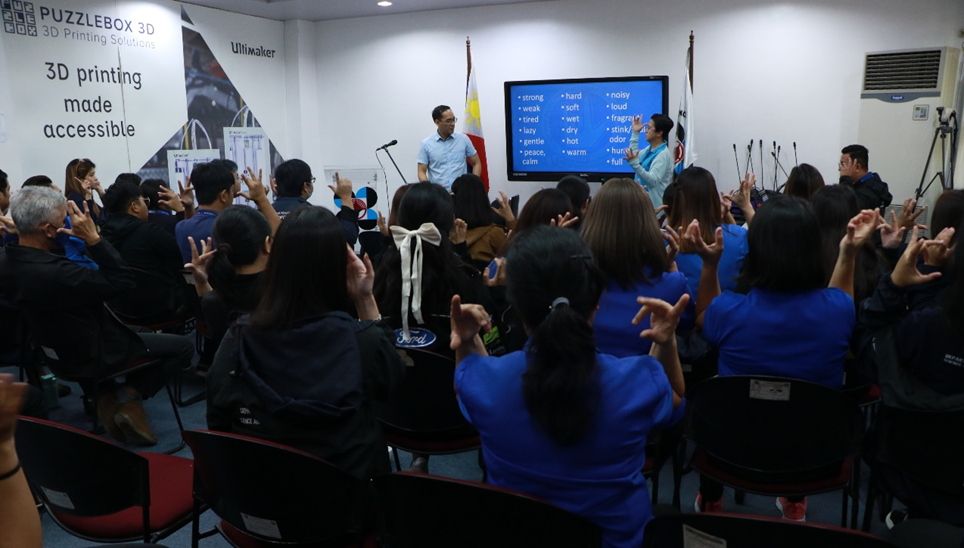DOST-STII promotes inclusivity through Filipino Sign Language training
To help enhance effective and inclusive communication, the Department of Science and Technology - Science and Technology Information Institute (DOST-STII) conducted a two-day training workshop on Filipino Sign Language (FSL).

DOST, in a statement released Oct. 6, said the workshop aimed to equip the institute's employees with "knowledge of the deaf culture, basic sign terminologies, communication, and the application of FSL to address communication gaps among persons with disabilities (PWD).”
The DOST envisions that this initiative will enhance public service by addressing the unique needs of individuals with disabilities.
In his opening remarks, DOST-STII Director Richard Burgos underscored the importance of language as a powerful tool that connects people from diverse backgrounds.
"It is crucial that we recognize and embrace the languages used by all members of our community," he said.
"Learning FSL is also a testament to the agency's commitment to creating a workplace that advocates for equal opportunities and respect for diversity, ensuring that 'everyone's voice is heard regardless of their abilities,” added Burgos.
Philippine Registry of Interpreters for the Deaf sign language trainer and evaluator Dean Edward A. Dimaguila, meanwhile, highlighted the distinct cultures and languages within the deaf community.
"The deaf community has its own culture and language, where conventional practices of hearing individuals may not apply,” he said. “These differences must be acknowledged to foster an inclusive workplace," he added.
Related to this, Dimaguila urged the public not to hesitate to engage with deaf people and to practice FSL effectively.
"Please don't be afraid to communicate with deaf individuals because they may not have many people to talk to,” Dimaguila said. “So, if they see us trying and making an effort to use sign language, even if it is inconsistent, the deaf will be patient in teaching us,” he added.
Dimaguila also noted that even with a basic understanding of primary signs and FSL, effective communication can be achieved through accurate facial expressions and body movements.
Furthermore, it was emphasized that terms such as "hearing impaired," "deaf-mute," "deaf and dumb," and "hearing deficient" are offensive to the deaf community. Instead, the terms "deaf" and "hard of hearing" should be used.
Meanwhile, the World Health Organization (WHO) estimated that by 2050, over 700 million people, or one in every ten individuals, will have disabling hearing loss. Hearing loss may be categorized as mild, moderate, severe, or profound, and it could affect one or both ears of an individual.